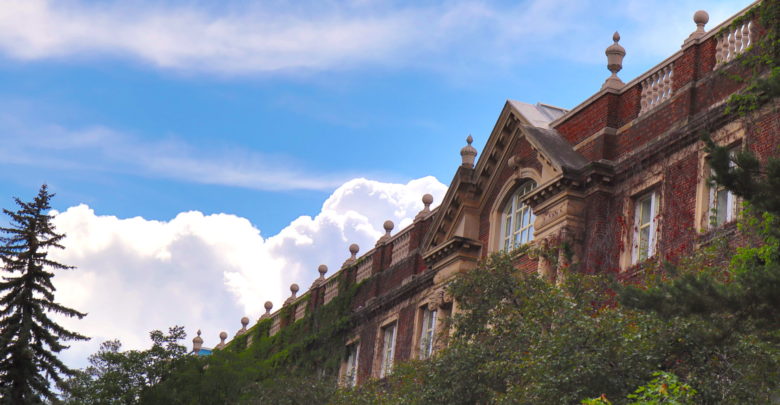 Lily Polenchuk
Lily PolenchukFive researchers from the University of Alberta are set to join the Royal Society of Canada (RSC), a scholarly institute founded in 1882. They will be formally inducted on November 7.
The RSC is the oldest bilingual organization of Canadian scholars. Its goal is to recognize Canada’s leading intellectuals, scholars, researchers, and artists.
Among those joining the 2024 class of RSC fellows is U of A’s own Cressida Heyes. Additionally, Martha White, Narges Noori, and Stephanie Green, an associate professor in the department of biological sciences, will join the College of New Scholars, Artists, and Scientists as members.
Tee Guidotti, a former faculty member and department chair in the faculty of medicine and dentistry, is also being inducted as a specially elected fellow.
Note: The Gateway was unable to obtain an interview with Green in time for publication.
Cressida Heyes works to understand how “subjects and structures interact”
Heyes is a professor in the departments of political science and philosophy at the U of A. Heyes is a Henry Marshall Tory Chair and has published multiple books and journal articles.
They are currently working on a book entitled Sleep is the New Sex. Heyes describes it as “a series of essays about why sleep is a cultural phenomenon [that] taps into some of our anxieties about gender and sexuality.”
Heyes described their work as “wide-ranging and very interdisciplinary.” The main theme of their work is how structures interact. Heyes is interested in “how we are made particular kinds of people in the context of much larger structures that determine us.” They look at “ordinary, everyday kind of phenomena” in relation to broader societal structures.
Heyes sees their upcoming induction into the RSC as “an opportunity to be part of a very well-established, intellectual, and artistic community.”
Heyes explained that the organization has had to “modernize and extend its reach.” They find that “in the context of the kind of work that I do as well as being a woman who lives in Western Canada, I think that it’s both an honour and a sign of something positive changing.”
Narges Noori is a freelance illustrator and author working to empower women
Noori is an author and illustrator currently working on two children’s books. Noori expressed that her books “serve to empower women.” In her home country of Afghanistan, she was an instructor in the faculty of fine arts at Kabul University.
Noori received a fellowship from the Institute of International Education’s (IIE) Artist Protection Fund (APF), which allowed her to continue her work at the U of A as a research award recipient.
The IIE’s APF is an initiative that gives fellowship grants to artists facing immediate threats to their lives and/or careers. They also place artists in safe countries to allow them to continue their work.
She explained that joining the RSC “means a lot.” Additionally, she hopes to “have some collaborations with those who are working with the same passion.”
As an author, Noori is driven to “do something positive to eliminate discrimination.” She explained that she has “experienced discrimination a lot” in her own life. Noori said that this is why she chose to work on children’s books, and had begun working on them for children in Afghanistan.
In the future, Noori hopes to publish her books in Canada. Although she said she’s unsure if she can accomplish that goal back home in Afghanistan.
“I’m not sure if I can publish it in Afghanistan because of the Taliban. I’m thinking about working on some projects that I can publish for my people,” Noori said.
Martha White’s goal is to create “robust algorithms”
Martha White is an associate professor in the department of computing science at the U of A. She is also conducting research surrounding reinforcement learning, a subfield of machine learning focused on automation.
Her research is based in the U of A’s Reinforcement Learning and Artificial Intelligence (AI) Lab. Using AI, White works to improve water treatment and ultimately make industrial systems more environmentally friendly.
White’s research aims to develop prediction and control systems that can learn and adapt. An example of this is in controlling the continuous adjustment of chemical dosing in wastewater treatment. Her goal is to implement “robust algorithms that can be deployed on real systems.”
She views her induction into the RSC as an opportunity to “connect to a network of exceptional people, which facilitates impactful work.”




